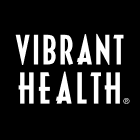
Plant Protein and Heavy Metals: What You Need to Know
A new study by the Clean Label Project has uncovered the truth about what can be found in the market's protein powders‚other than the nutrients we expect.
The Clean Label Project, a non-profit organization, endeavors to educate and inform the public on the dangers of toxins in products and their adverse effects on our health. For protein powders, they posed a question: what's actually in the top-selling brands of protein powder?
Some of the most popular protein powder brands were found to contain metal particles like arsenic, mercury, cadmium, and lead.
What's Going on with Heavy Metals?
While many consumers were surprised by the findings, the results are actually very easy to explain. Overwhelmingly, plant-based proteins in the study were found to have higher instances of heavy metals than other protein sources, such as whey.
So what's going on? Heavy metals are present in all sorts of vegetable crops, to lesser or greater degrees depending on the type of vegetable and the soil it's grown in. It follows, naturally, that any plant-based product will have some heavy metal contamination present. We encounter metals in every salad we eat, as well as many common foods. For example, in a study conducted by the FDA, a 4oz serving of boiled shrimp contained 23.80mcg of lead. See the chart below for more examples.

The responsibility lies on the product manufacturer, to use due diligence in ingredient selection and third-party testing to ensure the cleanest possible product.
Heavy Metal Warnings
Some states, like California, have passed legislation requiring consumer products to disclose the presence of certain contaminants. While we're all about transparency and informing the customer, these regulations require warning labels on products that contain 1/1000th of the normal safety limit.
Similarly, the Clean Label Project doesn't disclose what benchmark they use. At what contaminant level does the Clean Label Project deem something to be unsafe? In our opinion, the Clean Label Project should inform consumers further by allowing them to make their own educated decisions, based on transparent data from their findings.
The Vibrant Health and Heavy Metals
At Vibrant Health, our products go through rigorous testing and vetting to ensure that our products are as clean as they can be. First, our clinical nutritionist creates a blueprint for a product's formula. Next, we carefully source and supply every ingredient (a complex process referred to as tolling). The source of every ingredient in our products is managed in-house, resulting in an unmatched level of product quality and proper potency.
Once the source of an ingredient has been determined, it is assessed by a third party through sampling, certificates of analysis are analyzed, and clinical testing results are reviewed. If the material passes this testing round, it‚s on to blend in one of our GMP-certified facilities. After blending is complete, our finished product is sent to an independent, third-party, National Environmental LaboratoryAccreditationProgram (NELAP) certified laboratory for testing to confirm the nutritional analysis and guarantee our product meets heavy metal safety standards.
We know trust takes time to build, and we're proud to have earned the trust of the industry with our commitment to quality standards, clinically backed formulas, and third-party testing since the very first bottle of Green Vibrance. If you have any questions at all, reach out to our Customer Service team at 1-800-242-1835 or mail@vibranthealth.com.
DISCLAIMER: This information is not intended as a substitute for the advice provided by a competent healthcare professional. You should not use this information in diagnosing or treating a health problem. No claim or opinion in this blog is intended to be, nor should be construed to be medical advice. If you are now taking any drugs, prescribed or not, or have a medical condition, please consult a competent physician who is aware of herb/drug interactions before taking any herbal supplements. The information presented herein has not been evaluated by the FDA or the Department of Health and is not intended to diagnose, prevent, cure, mitigate, or treat any disease or illness.



